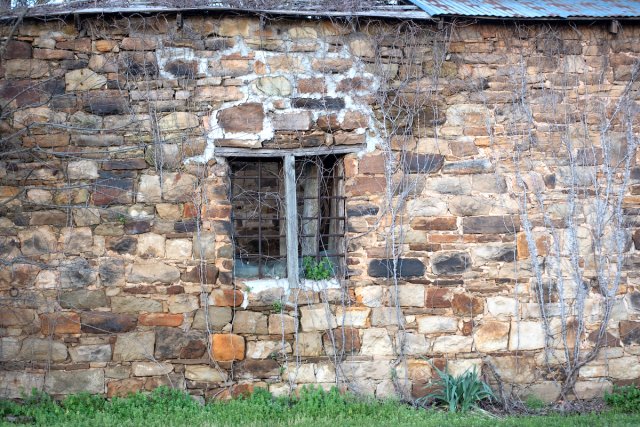

Since last summer’s U.S. Supreme Court ruling in McGirt v. Oklahoma, journalists have been covering the details, legal questions and uncertainties in the wake of the landmark court decision. Complicated and delicate in nature, the affirmation of Indian Country reservations and ongoing developments constitute an important storyline for the state of Oklahoma and the Muscogee (Creek), Cherokee, Chickasaw, Choctaw and Seminole nations.
This story is a part of the Oklahoma Media Center’s Promised Land collaborative effort, which shows how the landmark McGirt v. Oklahoma decision will affect both tribal and non-Indigenous residents in the state.
Recently, the Oklahoma Media Center launched a collaborative reporting project called The Promised Land: A Supreme Court decision places Oklahoma at a crossroads.
Newsrooms across the state have committed to share their content regarding issues pertinent to court rulings and their effects on Indigenous and non-tribal residents of Oklahoma.
The following recap features the opening paragraphs of five stories that were published between April 17 and April 23 by Oklahoma reporters. To read more from each story, click on the provided hyperlinks.
The snippets below have been edited lightly for date clarity and to include additional links to relevant information.
Judge rules State of Oklahoma has jurisdiction for former KCA reservation
By Scott Rains
The Lawton Constitution
April 17, 2021
A Comanche County District judge ruled April 16 the State of Oklahoma has jurisdiction in a conjoined case with national ramifications.
Following a March 12 evidentiary hearing to determine if there is enough standing for Joshua Tony Codynah, 32, and Mica Alexander Martinez, 39, to seek relief from the courts of their prison sentences, District Judge Emmit Tayloe weighed arguments.
Codynah, who is 1/4-Kiowa, 1/8-Comanche and 1/8-Cheyenne-Arapahoe, and Martinez, who is 1/4-Comanche, argued the State of Oklahoma doesn’t have jurisdiction to try them for crimes committed in the traditional Kiowa, Comanche and Apache (KCA) reservation.
Both men are convicted murderers.
Read The Lawton Constitution’s full story on swoknews.com
Opportunities abound in American Indian Law
By Kimberly Burk
The Oklahoman
April 22, 2021
Stephanie Hudson never tires of helping fellow Native Americans with their legal issues. And Lindsay Robertson is equally excited about training students who will specialize in Native law.
“I just absolutely love this work, and all of our attorneys do,” said Hudson, who is Kiowa and the executive director of Oklahoma Indian Legal Services.
The 10 attorneys who staff the Oklahoma City-based nonprofit “work for a lot less than what they are really worth,” Hudson said. “They do it because they want to make sure the tribal members get what they really need.”
Robertson, who is not Native, holds the Chickasaw Nation Endowed Chair in Native American Law at the University of Oklahoma College of Law. He said it’s one of only two such chairs in Native American law — the other one is at Harvard.
Read more about the increased need for attorneys trained in American Indian law.
From a convicted murderer’s release to contested taxes, we fact checked Gov. Stitt’s claims about the McGirt ruling
Clifton Adcock
The Frontier
April 23, 2021
Oklahoma Gov. Kevin Stitt has been outspoken about his displeasure with the U.S. Supreme Court’s McGirt decision, which he says is a threat to public safety in the state.
The landmark 2020 court ruling found that Congress never dismantled Indian reservations for the Five Civilized Tribes that existed in Oklahoma before statehood and that much of the eastern part of the state is Indian country.
The state of Oklahoma lacks jurisdiction to prosecute many crimes on Indian land, and the task now falls to tribes and federal prosecutors.
Stitt says that people convicted of serious offenses are being released from state prisons and that hundreds of criminal cases are going unprosecuted in the aftermath of the ruling.
But the Chickasaw Nation claims that Stitt has “sensationalized and exaggerated accounts of transitional challenges,” according to a brief the tribe filed in the Oklahoma Court of Criminal Appeals. The Frontier has fact checked some of Stitt’s recent claims about the ruling using interviews with law enforcement and information from prosecutors, state and tribal officials and public records.
Read more about Stitt’s claims surrounding the McGirt ruling fact checked by the Frontier.
Tribal council approves temporary measure decriminalizing medical marijuana
By Derrick James
McAlester News-Capital
April 22, 2021
Choctaw Nation Tribal Council members passed a temporary amendment regarding the use of medical marijuana for Native Americans living within the tribe’s jurisdiction.
The council voted during the special session to amend the tribe’s public health and safety code that outlawed the use and growing of marijuana, including medical marijuana.
Medical marijuana cards or business licenses issued by the state of Oklahoma were not recognized under Choctaw Nation law after the April 1 Oklahoma Court of Criminal Appeals ruling that applied the U.S. Supreme Court’s decision in McGirt v. Oklahoma to the Choctaw Nation reservation.
According to tribal laws, Native Americans who now fall under the criminal jurisdiction of the tribe who used medical marijuana risked jail time and fines.
Read more about this temporary medical marijuana amendment.
Citing McGirt ruling, Oklahoma court tosses convictions of drunk driver who killed two sisters
By Chris Casteel
The Oklahoman
April 23, 2021
The Oklahoma Court of Criminal Appeals on Thursday overturned the second-degree murder convictions of a man who killed two sisters in a car wreck in 2016, ruling that the state didn’t have jurisdiction in the case because the women were Chickasaw Nation tribal members and the crash occurred on the tribe’s reservation.
The court cited the U.S. Supreme Court’s decision in the McGirt case in reversing the convictions of Shawn Thomas Jones, who was given consecutive life sentences for the deaths of Brooke Trotter, 34, and Becky Trotter, 29, of Antlers. The sisters’ mother, Jauquetta Trotter, was injured in the wreck.
The U.S. attorney’s office in Muskogee, anticipating the state ruling, obtained grand jury indictments last week charging Jones, 38, with two counts of second-degree murder in Indian Country and one count of driving under the influence resulting in great bodily injury.
Read more about Jones’ indictment.






















